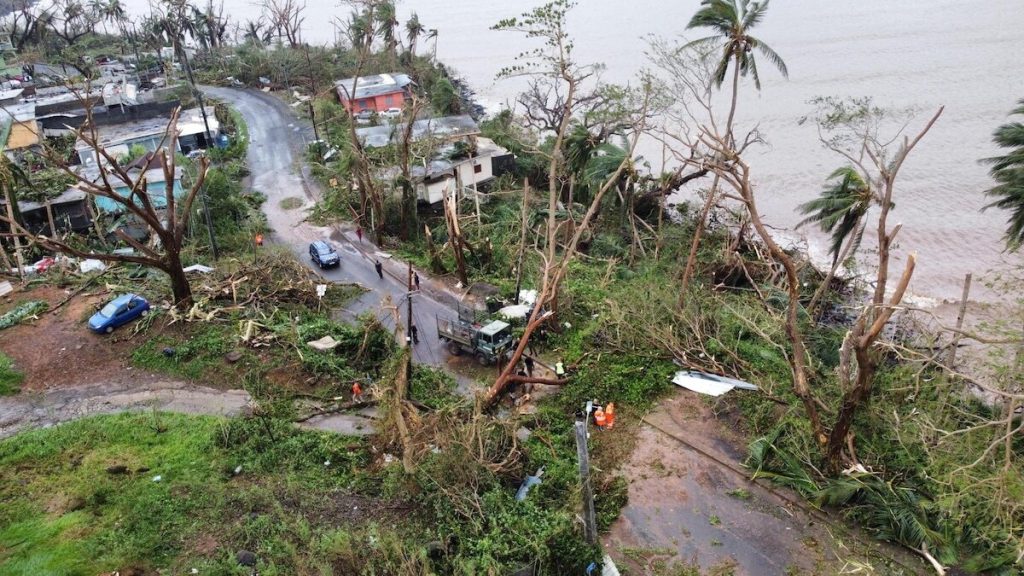A preliminary study has found that climate change significantly amplified the intensity of Cyclone Chido as it struck the Indian Ocean archipelago of Mayotte. The research, conducted by Imperial College London, highlights the growing link between global warming and increasingly powerful tropical storms.
The study estimates that cyclones like Chido are 40 percent more likely in the warmer climate of 2024 compared to pre-industrial times. Cyclone Chido, which made landfall on Saturday, was the most destructive storm to hit Mayotte in 90 years. It devastated the island’s tin-roofed homes, with the true scale of the damage still uncertain. Officials fear that the death toll could eventually climb into the thousands.
Classified as a Category 4 storm—the second-highest classification on the five-point scale—Chido crossed Mayotte, where a significant portion of the population lives in makeshift housing. The cyclone brought extreme wind speeds and ferocity, sparking scientific investigation into the role of climate change.

Scientists used an advanced computer model, running millions of simulated tropical cyclones, to estimate the impact of global warming on storm intensity. Their findings suggest that the wind speeds near Mayotte were about 3 miles per second faster than they would have been in a pre-industrial climate.
The study concluded that climate change uplifted Chido’s intensity from a Category 3 to a Category 4 storm, confirming that warmer oceans and atmospheric temperatures are contributing to the increased strength of tropical storms.
While France’s weather service has stopped short of directly attributing the storm’s intensity to global warming, it has acknowledged that human-driven climate change has made storms more violent, particularly due to warmer oceans.
Scientists stress that the world is now nearly 1.3 degrees Celsius warmer than in the pre-industrial era. This added heat in both the atmosphere and oceans provides a potent fuel source for tropical storms, causing more frequent and volatile weather events. Warmer air holds more water vapour, while warmer oceans lead to greater evaporation, conditions that intensify tropical storm formation.


